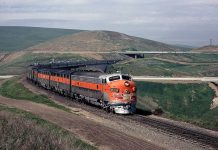The minimum fare of the Kochi Metro has been fixed at Rs.10 and the maximum at Rs 60.
Commuters will be able to travel the distance between any two stations by paying Rs. 10, while they can travel along the 25-km-long Aluva-MG Road-Pettah corridor by paying Rs. 60. The decision was taken at the 25th meeting of the board of directors of Kochi Metro Rail Limited (KMRL) which was held in New Delhi on Tuesday.
The board authorised the metro agency to take a decision on special discounts on fares for users of ‘Kochi-1’ smart card and App. The pre-paid card can be used in other modes of public transport too – i.e., KSRTC and private buses, ferries operated by the SWTD and the 58 air conditioned ferries planned in the Greater Kochi area by the KMRL.The smart card is expected to be launched in early 2017.
The fares have been fixed based on the ridership projection mentioned in the Detailed Project Report prepared in 2011 by the DMRC and which was revised in 2014, KMRL sources said.
Tuesday’s board meeting also approved the recommendations for fixing the optimum fare structure which was prepared as per a study carried out by the Indian Institute of Management (IIM), Bengaluru. The study had proposed that “fare zones” be allotted based on their proximity to and from the point of origin of the metro – the Aluva station. This was approved by the board.
The fare zones will be named F1, F2, F3 and up to F6, for distances ranging from 2 km (F1) from the point of origin; 5 km (F2); 10 km (F3); and will increase in multiples of 5 km, leading up to F6 (25 km from the point of origin). The ticket fare will increase by Rs. 10 for every additional zone.
The proposed fares, although marginally higher than those of Volvo city buses, have been finalised considering the comfort, time saving and dependability of the metro. Metro trains are initially expected to operate every five minutes on the Aluva-Pettah corridor.
The fare structure also compares favourably with that in other metros across the country (especially Bengaluru and Chennai metros), said a KMRL press release. The Delhi Metro enjoys sound patronage and income though it still operates at rock-bottom fares that were introduced when it was commissioned 15 years ago.
The board also approved Kochi Metro’s policies on advertisement, station-naming rights and station interconnection, apart from other related strategies to be implemented for additional revenue generation for the metro’s operation and maintenance.
Advertisements have been planned at metro stations, pillars along the 25-km viaduct, website and the interior/exterior of trains. Stations would be named after firms that remit the requisite fee. Similarly, commercial establishments or malls in the immediate vicinity of a metro station can opt for a link with the station by paying a fee. They stand to gain through increased footfalls in their establishments. With the board approval, the decks have been cleared for inviting tenders for these revenue-generating modes.
The board also reviewed the project and the schedule of progress for the next few months. Union Urban Development Secretary Rajiv Gauba chaired the meeting.



















